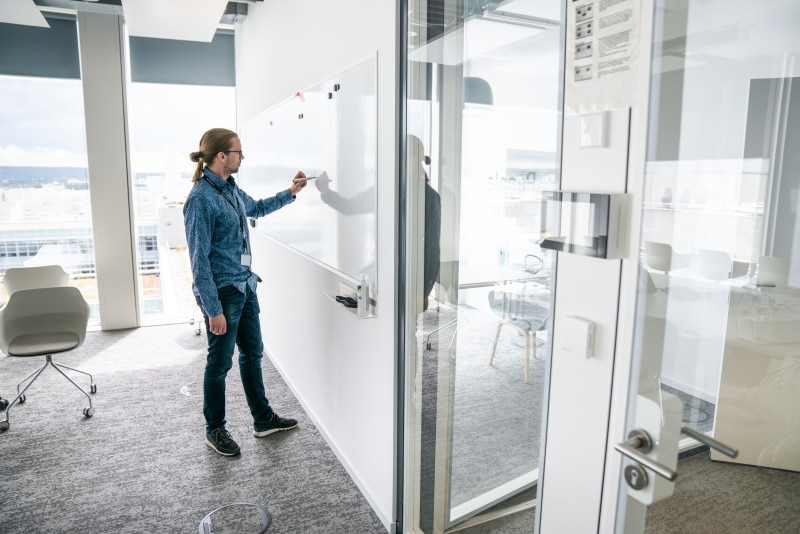How can we picture your "Data Insights" team?
We are a group of programmers with very different areas of expertise: from data handling to machine learning and cloud infrastructure. Our team is still quite new and was set up a year ago. That gives us a lot of freedom. We often try out new working methods. In the "Data Dashboard" project, for example, we tested "pair programming". Two team members always worked on a code in parallel. This is a really cool method because it creates a lot of team spirit and at the same time ensures a tremendous transfer of knowledge. And when implementing new projects, we often work in sprints and with agile working methods.
At Mercedes-Benz, you are an expert in machine learning. But you actually come from a completely different subject area ...
Yes, I am actually an astro- and geophysicist (laughs). I have always been fascinated by space and everything around us. I got that from my mother, by the way. When I was a child, we used to watch the planetary and stellar constellations together at night. That is why I went on to study physics and specialised in astrophysics and geophysics for my Master's degree. At that time, I also had a lot more involvement with machine learning and data mining tools. And for my doctorate at the Institute of Space Systems at the University of Stuttgart, I then worked on the Cassini mission ...
... the NASA space probe that has been studying Saturn and its moons in more detail?
Exactly. The great thing for me was that Cassini was launched when I was still at primary school and now, as a postgraduate, I worked on the mission myself. Among other things, Cassini also had European contributions on board, such as the Cosmic Dust Analyzer, which could detect cosmic dust. We received huge amounts of data that the probe collected over many years. And thanks to digital technologies, we finally had completely new possibilities to analyse this data.
,xPosition=0,yPosition=0)



,xPosition=0.5,yPosition=0)